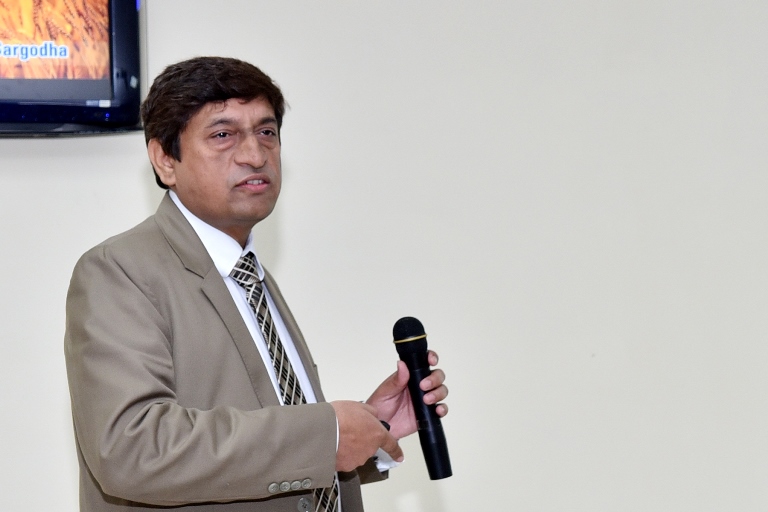The 9th national conference on sustainable wheat production commenced at the University of Sargodha here on February 12, 2019. The conference aims at providing a platform for discussing and sharing innovative research experiences for higher wheat production by bringing together academia, researchers and genetic engineers.
The 9th national conference titled ‘Innovative Trends in Wheat: Way Forward to Sustainable Wheat Production’ was organised by the College of Agriculture, Sargodha University in collaboration with the Higher Education Commission of Pakistan.
The moot aims at exploring premier problems solving approaches for sustainable self-sufficiency in wheat crop and to unravel strategies and management tools for reducing post-harvest losses, quashing the complexities of genetic potential and farmer yield returns.
The conference was attended by a galaxy of agricultural scientists and wheat production experts including Director Wheat Ayub Agricultural Research Institute (AARI) Dr Javed Ahmad, Dr Mehboob-ur-Rehman, Principal Scientist at National Institute of Biotechnology and Genetic Engineering, Syed Adeel Zafar from the Institute of Crop Sciences at the Chinese Academy of Agricultural Sciences, China, Dr Muhammad Afzal Dean Faculty of Agriculture and a large number of students.
During oral talks, the guest speakers enlightened the participants on themes like conventional breeding, marker assisted breeder, biotic and abiotic stresses and post-harvest losses.
In his welcome address, Dr Ijaz Rasool Noorka, Principal College of Agriculture, Sargodha University, said that agriculture is the cornerstone of our national economy, engaging almost 2/3 of the population directly for their livelihood and substances. He said that the conference will provide sounding platform to discuss and share innovative research experiences for higher wheat production by bringing together academia, researchers and plant breeding entrepreneurs.
Javed Ahmad, Director Wheat at AARI shared his views on present status and future prospects in wheat research and production. He said that the genetic potential of wheat varieties of Pakistan is very high but the country average is comparatively very low. The vertical increase in population demands continuous increase in wheat production which is possible only by increasing yield per unit area, he added.
Dr Mehboobur Rehman, keynote speaker of the conference, presented his paper on ‘Bridging Multinational and Genomic Tools for Gene Identification in Triti-cum-Aestivuml’. He said that it is demonstrated that mutagens are extremely useful in inducing novel mutations that can be used for studying functions of genes and can also be used in breeding programs for developing resilient wheat cultivars.
The conference will remain continue for two more days during which oral talks, poster presentations and field visits would be carried out by the renowned scholars.

